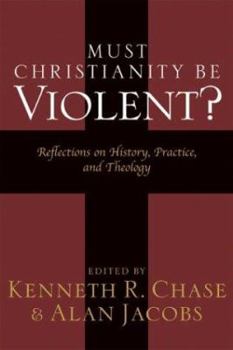Must Christianity Be Violent?: Reflections on History, Practice, and Theology
Select Format
Select Condition 
Book Overview
The Crusades. The Conquest of the Americas. U.S. Slavery. The Jewish Holocaust. Mention of these events evokes a variety of responses from Christians, including guilt, defensiveness, and bewilderment.... This description may be from another edition of this product.
Format:Paperback
Language:English
ISBN:1587430649
ISBN13:9781587430640
Release Date:October 2003
Publisher:Brazos Press
Length:256 Pages
Weight:0.90 lbs.
Dimensions:0.7" x 6.1" x 9.1"
Customer Reviews
1 rating
Excellent Discussions of Christians and Violence
Published by Thriftbooks.com User , 20 years ago
This timely and helpful work is the result of a conference at Wheaton College (Illinois) in 2000. The goal was to investigate and apply the Christian ethic of peace and how it has been compromised by believers over the centuries. The triadic focus of the book allows the reader to consider historically both Christian complicity and prophetic action regarding the First Crusade (Joseph Lynch), the conquest of the Americas (Luis Rivera-Pagan), American slavery (Dan McKanan), the Holocaust (David Gushee), and whether Christians have done more harm than good (Mark Noll). Christian practices are also considered, such as teaching American history from a perspective of constructive nonviolence (James Juhnke) and the emerging Just Peacemaking Theory that seeks to bring just war theorists and pacifists together to engage in concrete peace building practices that can prevent wars (Glen Stassen). Stassen continues to improve the approach with both biblical scholarship (from NT Wright, EP Sanders, JD Crossan, etc.) and practical implementations. Richard Mouw, Stanley Hauerwas, and John Milbank provide the theological wrestlings that conclude the book. Mouw presents a Reformed perspective of the atonement and defends it against the claims that the atonement inherently promotes violence. Hauerwas' "Explaining Christian Nonviolence" admirably explains why nonviolence cannot be explained. It is not an ideal that can be abstracted from Christology, ecclesiology, eschatology, the Christian life, and discipleship. It can be lived, it is a skill. Milbank answers with a chapter on the double passivity of violence: the passive watching of violence is itself violent. The transcript of their public conversation about Christian Peace, with questions from the audience, is also included.




